Drivers can monitor the engine's condition from the instrument panel. Observe the temperature gauge to know whether your engine is running hot. A car running hot but not overheating may be neglected because there are no observable signs there is a problem. We have researched every aspect you need to know about this issue.
Several parts of your vehicle could cause your car to run hot but not overheat. These are the main reasons:
- Overworked Engine
- Damaged Radiator
- Faulty Water Pump
- Malfunctioning Thermostat
- Problem in the Cooling System
If your vehicle encounters this condition, we hope you find this article helpful on how to diagnose, address and solve the problem. Furthermore, certain tips are included on how to maintain your car's general performance.
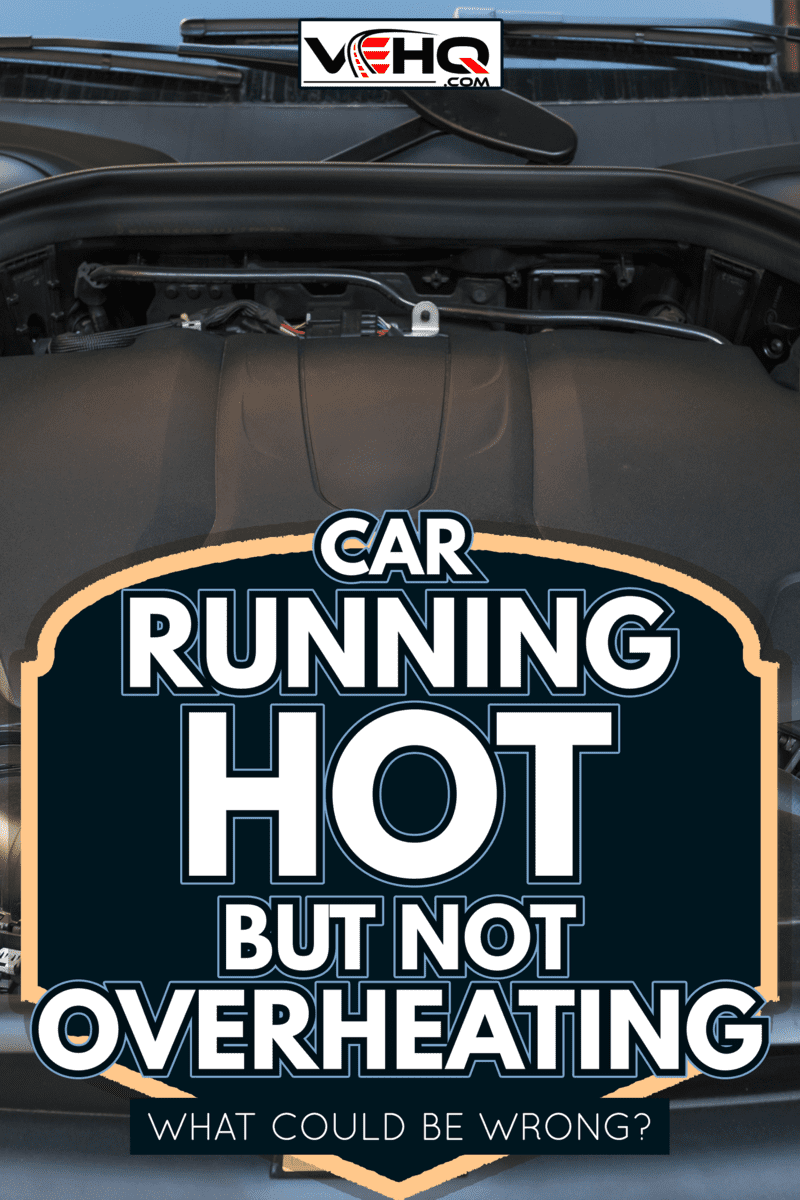
How does your car engine work?
Before we move on to your general concern, here is an overview of how your car engine works.
The core of the engine is the cylinder that houses the pistons. The piston cycles include intake, compression, power, and exhaust mechanisms.
Fuel is injected into the engine (intake), it is compressed to generate potential force (compression), then released to propel it into motion (power). Finally, excess fuel material is expelled through the exhaust.
Spark plugs ignite the air-fuel mixture so combustion can occur. Intake and exhaust valves allow the fuel and air in and let the smoke out. The pistons move up and down the cylinder head. The connecting rod attaches to the crankshaft which in turn makes the wheels of your car turn.
Reasons Why Car is Running Hot But Not Overheating
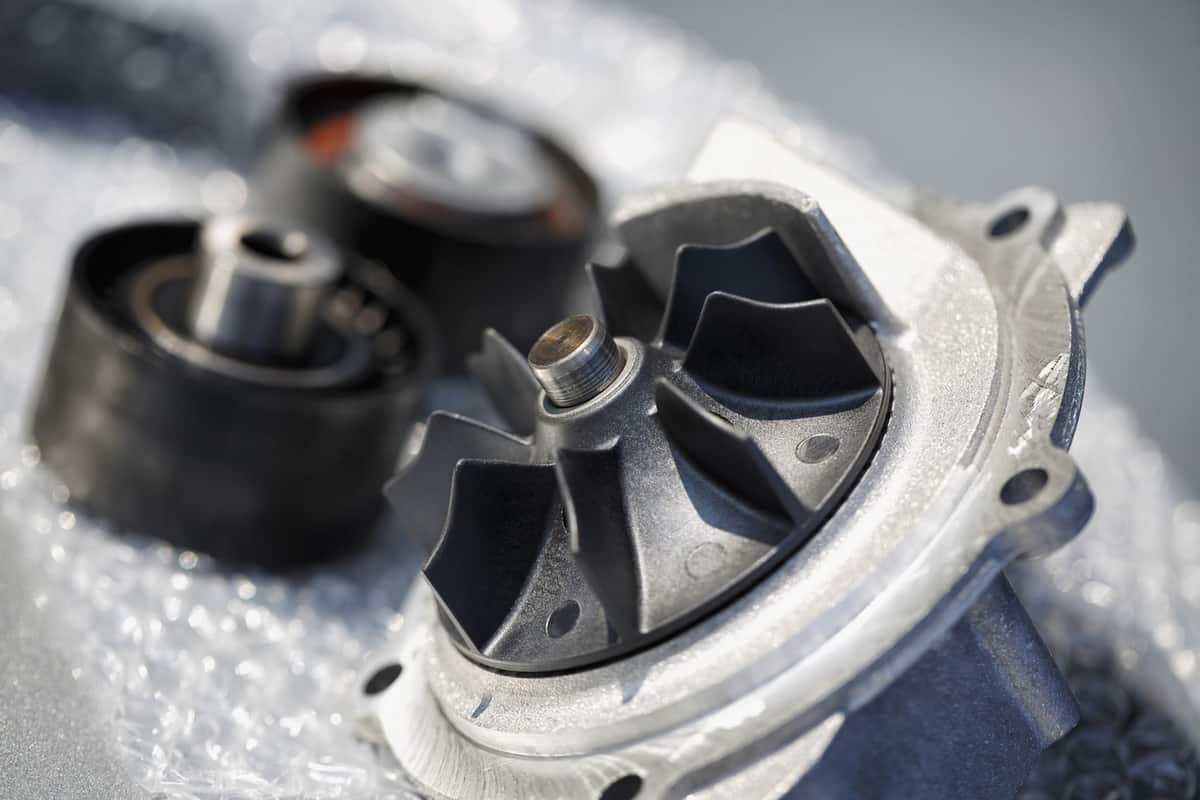
Overworked engine
If one or any other part of the engine is not working properly or is damaged, this causes the motor to work harder. If unchecked over time, engine failure can ensue.
Monitor your cylinders, spark plugs, line connections, and fuel components regularly. If you notice that your car runs slower or consumes more fuel, certain engine parts might need maintenance or replacement.
Radiator problems
Your radiator circulates cool water to keep the engine working efficiently. Blockage or obstruction prevents proper venting and leads to heating problems as well. Keep and maintain them clean so as not to cause engine heating.
Water pump malfunction
Your car's water pump's main purpose is to circulate coolant into the engine to prevent overheating. If there is not enough coolant in the system, your car may turn hot as a result.
Malfunctioning thermostat
Your vehicle's thermostat mainly regulates the circulation of air from the radiator to prevent the engine from overheating.
The coolant thermostat serves as a gateway and is responsible for regulating the temperature around the engine by controlling the flow of coolant.
If the engine is hot, the thermostat will open to allow the coolant to pass through the radiator. The thermostat is closed when the engine is too cold to prevent coolant from passing through the radiator.
A malfunctioning thermostat will restrict the airflow inside the system causing your car to turn hot.
Problem in the cooling system
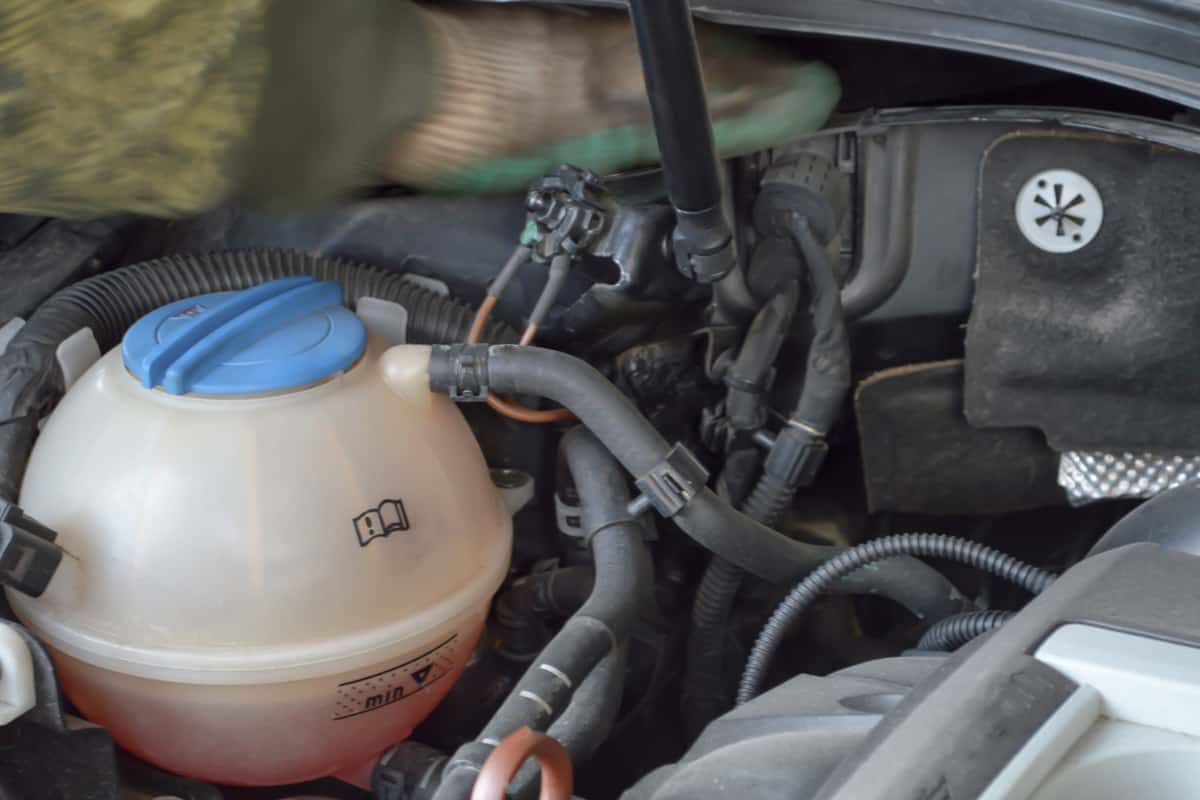
If you notice your car running hot but not overheating, you should inspect your vehicle's cooling system. This system includes several components that are necessary to keep your engine cool. If any of these parts are in poor condition, the automobile will run hot.
What are issues in the cooling system that cause a car to run hot?
Low Coolant Level
As the name implies, coolant is a mixture of liquid and antifreeze that keeps the engine from overheating. Its basic function is transferring heat and adding antifreeze protection. When your coolant is low, the engine will start to heat up and eventually overheat. That's why it's important to keep your coolant level topped-up.
Check out Engine Ice Coolant on Amazon.
Old Coolant
Over time, most automobiles experience a reduction in the original coolant level because of evaporation. It is ideal to change your engine coolant every two years to prevent your vehicle from running hot or overheating for an effective cooling system.
Old coolants may not keep the internal components of the engine from rusting and corrosion. This could lead to rust and debris buildup that could clog your cooling jacket.
Faulty Cooling Fan and Temperature Sensor
The cooling fan is switched on when the engine is too hot. Its main function is to increase the amount of cool air circulating through the radiator when your car is not moving fast or is stationary.
The temperature sensor checks if your vehicle is running hot and reports it to the Electrical Control Unit (ECU), which will then activate your car's cooling fan. If one or both of these components malfunction, the engine will begin to heat up and eventually overheat.
What to do when a car is running hot but not overheating?
Shut down all electrical accessories
Letting your vehicle run while turning off all electrical accessories such as air conditioner and radio can help cool the system because it lessens the engine's effort.
Stop driving and park your vehicle
If you notice severe heat emanating from your car, stop driving and park your car in a shaded area. Open all the doors and remove any items inside the passenger compartment such as glove boxes, pillows, floor mats, and any other objects.
The airflow would not be restricted. By doing this, you are allowing the heat to escape and the cool air to enter the vehicle.
Use Coolant if necessary (wait for 30 to 60 minutes before adding)
Remember to let the engine cool off before pouring coolant into the system. Low coolant levels can prevent the radiator from cooling and regulating the temperature around the engine.
How to avoid an overworked engine?
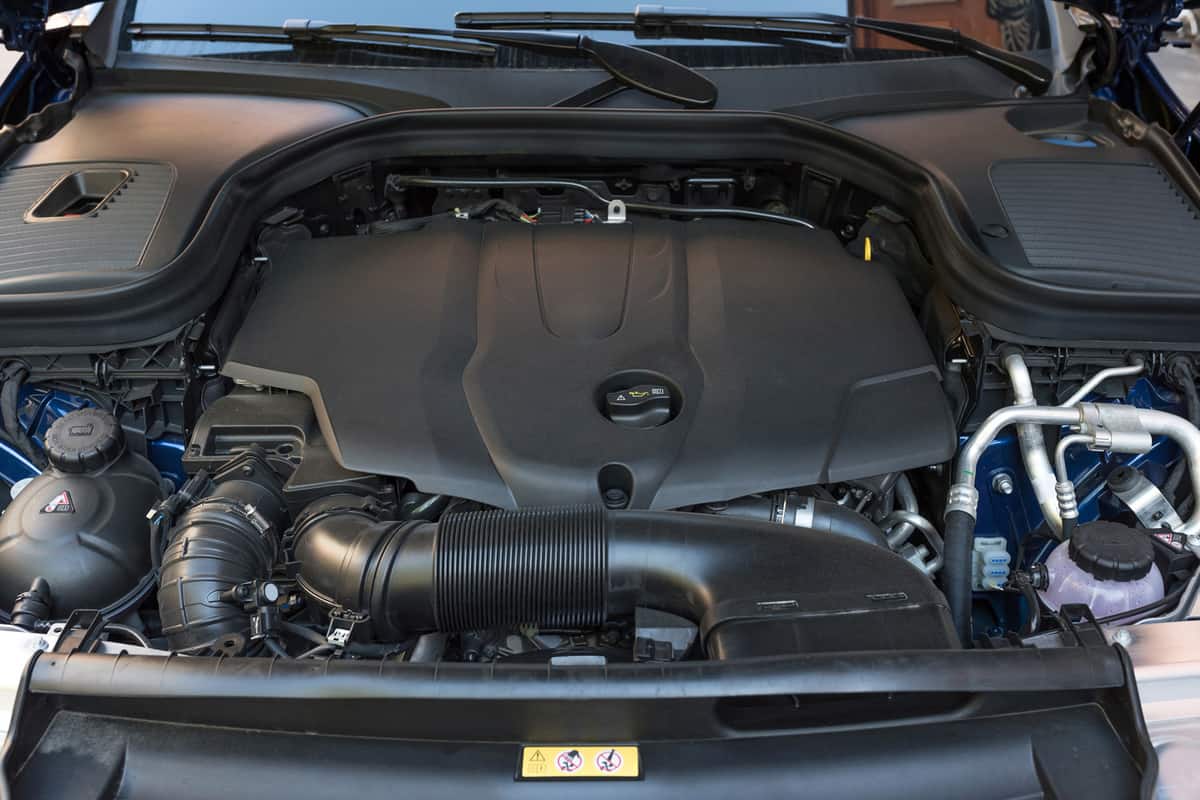
Certain rules apply when driving a vehicle. It is important to follow these preventive measures to avoid overworking your engine.
Do not run your vehicle on low fluids
Fluids such as oil and coolants are necessary in order for your car to function properly and to prevent your engine from overheating. Your automobile's oil provides the engine's moving parts with lubrication, while the coolant reduces the engine's heat to maintain a normal temperature.
Never ignore a check engine light
A check engine light is a sign that something has failed in your vehicle's system. This warning needs to be addressed immediately because, in the long run, it will cause damage to the engine, and to your automobile.
Avoid engine lugging
Engine lugging is driving the car at a certain speed lower than that of the engine. This situation happens when you forget to lower the engine gear while slowing down your car. The engine will be forced to work harder when it does not need to.
Remember to warm up the engine
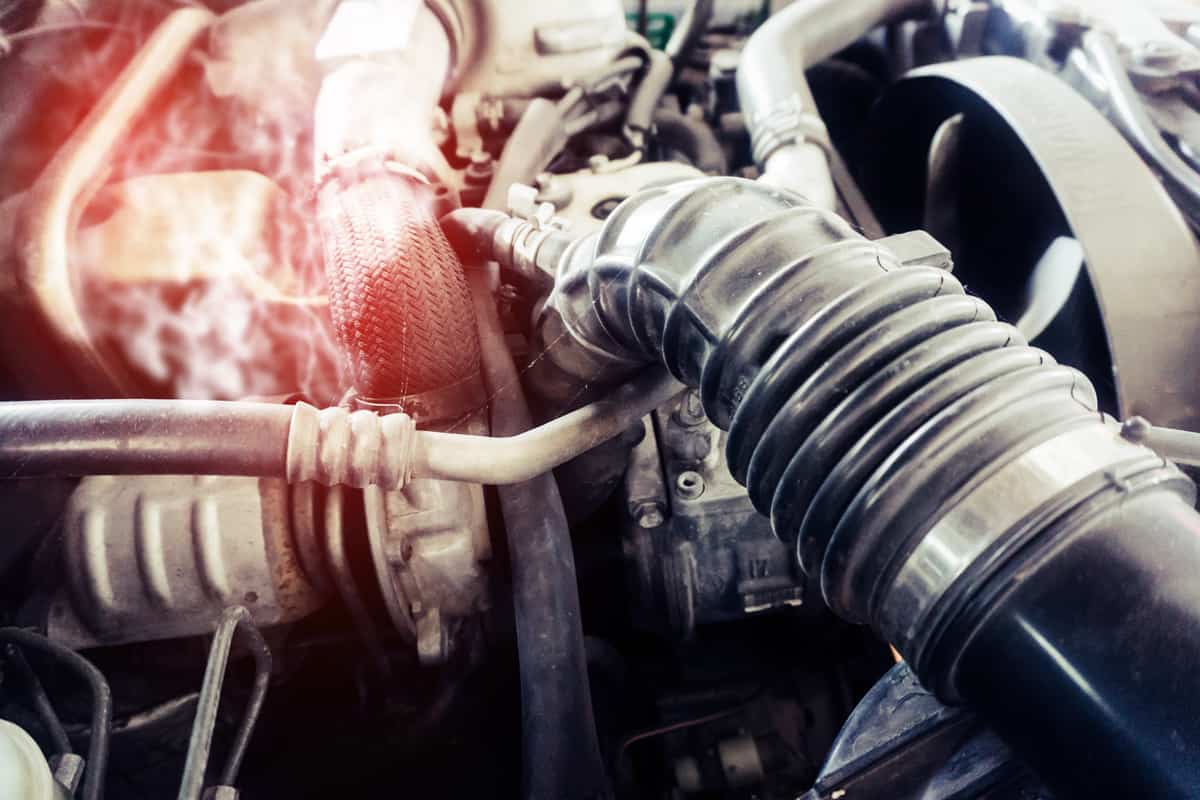
Before using your vehicle, it is important to rev up the engine. This specific component of your car needs to be warmed up in order for it to work properly. Also, there are several fluids inside the system that need heating up to flow smoothly around the engine.
When driving with turbo engines, avoid sudden and tough breaking
Turbo engines are quite sensitive and can get very hot when the car is driven hard. If you subject your engines to a sudden stop after a long and intense driving, the oil within the turbines is still hot. This can harm the interior parts of the engine.
Avoid putting additional weight on the vehicle
Every car is designed to handle a specific weight restriction. Additional baggage causes too much pressure. Because of the tension, your engine will operate twice as much as its normal working limit.
Never over-accelerate your vehicle
Slamming your vehicle's accelerator can harm your engine because it will not have enough time for a good and smooth transfer of power to your car's wheels.
Do not drive with low-pressure tires
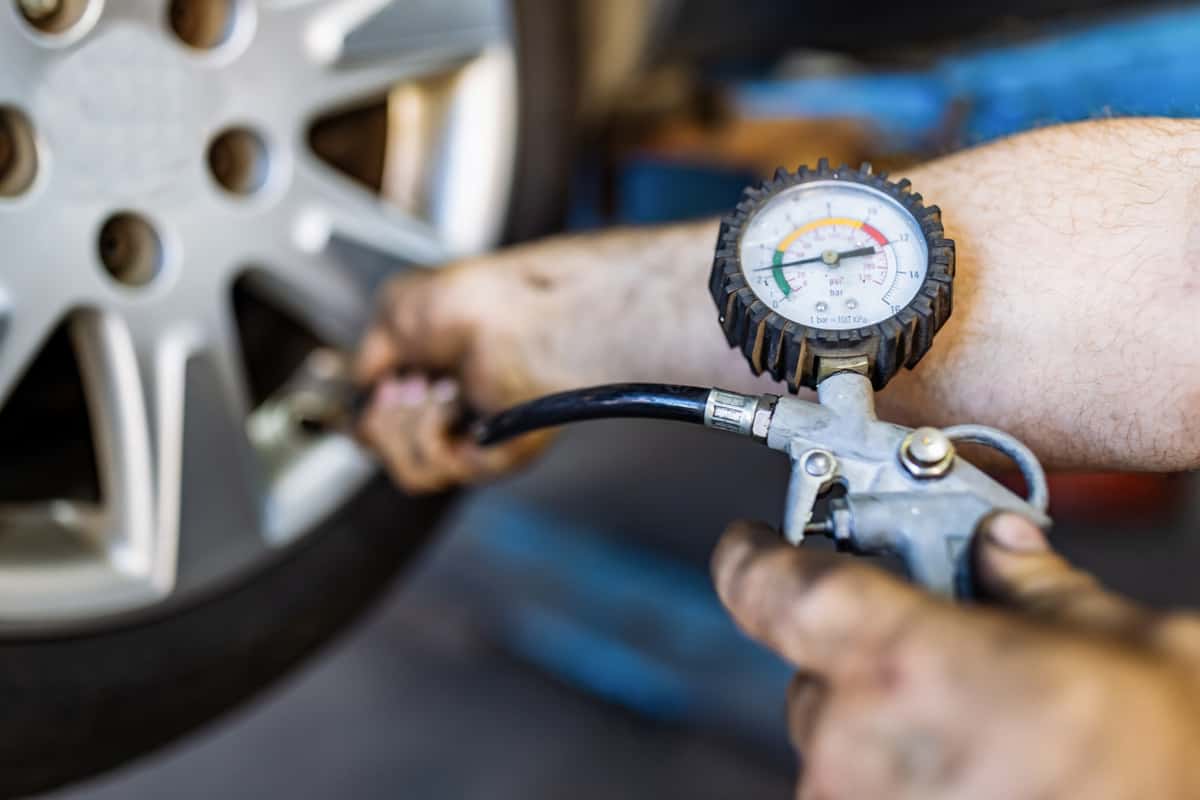
Driving with low tire pressure causes the engine to strain because it will need to provide more power to help move the vehicle.
Avoid driving on poorly maintained roadways
Driving on damaged roads increases stress and tension that can eventually lead to a cracked engine. Over time, excessive force can also affect your vehicle's suspension system.
Avoid constant speeding
Constant speeding may raise heating and friction in your vehicle's engine and increase the pressure on other components. Make it a habit to maintain optimal driving speed to prevent subjecting your engine to high tension.
In Closing
We hope this article proved to be beneficial to you. Always remember the preventive tips we mentioned to avoid overworking your vehicle's engine and to prevent your car from running hot.
Here are other articles that may be helpful and informative for you:

